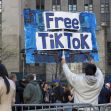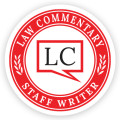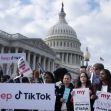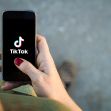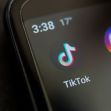The U.S. government and TikTok are locked in a contentious legal battle over access to classified evidence central to the government's efforts to ban the popular social media app. For over four years, federal officials have argued that TikTok, owned by the Chinese company ByteDance, poses a national security threat.
The core concern is that TikTok's algorithm and data-collection practices could potentially be manipulated by the Chinese Communist Party to influence the content viewed by the app's 170 million American users. This fear is rooted in Chinese laws that could compel ByteDance to comply with government demands.
However, specific evidence substantiating these concerns has been conspicuously absent from the government's public statements. Instead, the Justice Department's case relies on the potential risk, arguing that ByteDance could be forced to cooperate with Beijing. Despite the lack of concrete examples, the Biden administration has pushed forward with efforts to ban TikTok unless it is sold to a U.S.-based company.
In response, TikTok has filed a lawsuit seeking to halt the impending ban, which is set to take effect by January unless the app is divested. In its recent legal filing, TikTok has requested the appointment of a "special master"—a federal judge with the authority to review the government's classified materials. TikTok argues that significant portions of the government’s filings have been heavily redacted, with as much as 30% of some documents obscured.
TikTok’s legal team insists that the government must choose between complying with the procedures of transparency or withdrawing the secret evidence. They contend that the court’s review of the classified material is essential to ensure that the government’s case is not overly broad and is factually supported.
The Justice Department is resisting TikTok's request, arguing that the appointment of a special master would cause unnecessary delays in a case that requires swift resolution. Instead, the government has proposed an “ex parte” approach, where only the federal court, and not TikTok, would be allowed to view the classified evidence.
The Justice Department maintains that revealing the classified information could cause "exceptionally grave" damage to U.S. national security. They argue that this information provided Congress and the executive branch with critical context for evaluating the risks posed by TikTok, and that the court should have access to the same information.
TikTok has sought to address national security concerns through "Project Texas," a $2 billion initiative that involves Austin-based software company Oracle supervising the app's data to prevent interference by ByteDance employees. The company asserts that this project ensures that the TikTok used by Americans cannot be manipulated from China.
However, the Justice Department disputes TikTok's claims, alleging that the app has shared sensitive data with ByteDance employees in China, including information on American users' opinions on controversial issues like gun control and abortion. The government also claims that Beijing-based employees have the capability to alter TikTok's algorithm and amplify specific content, further fueling national security concerns.
The resolution of this legal battle will ultimately rest with a three-judge federal appeals court panel in Washington, which is expected to rule on the issue in the coming weeks.
